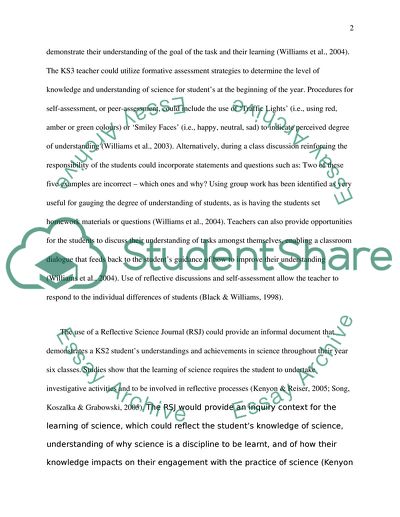Cite this document
(“Science - Assessment and Transition from KS2 to KS3 Essay”, n.d.)
Retrieved from https://studentshare.org/miscellaneous/1536726-science-assessment-and-transition-from-ks2-to-ks3
Retrieved from https://studentshare.org/miscellaneous/1536726-science-assessment-and-transition-from-ks2-to-ks3
(Science - Assessment and Transition from KS2 to KS3 Essay)
https://studentshare.org/miscellaneous/1536726-science-assessment-and-transition-from-ks2-to-ks3.
https://studentshare.org/miscellaneous/1536726-science-assessment-and-transition-from-ks2-to-ks3.
“Science - Assessment and Transition from KS2 to KS3 Essay”, n.d. https://studentshare.org/miscellaneous/1536726-science-assessment-and-transition-from-ks2-to-ks3.


